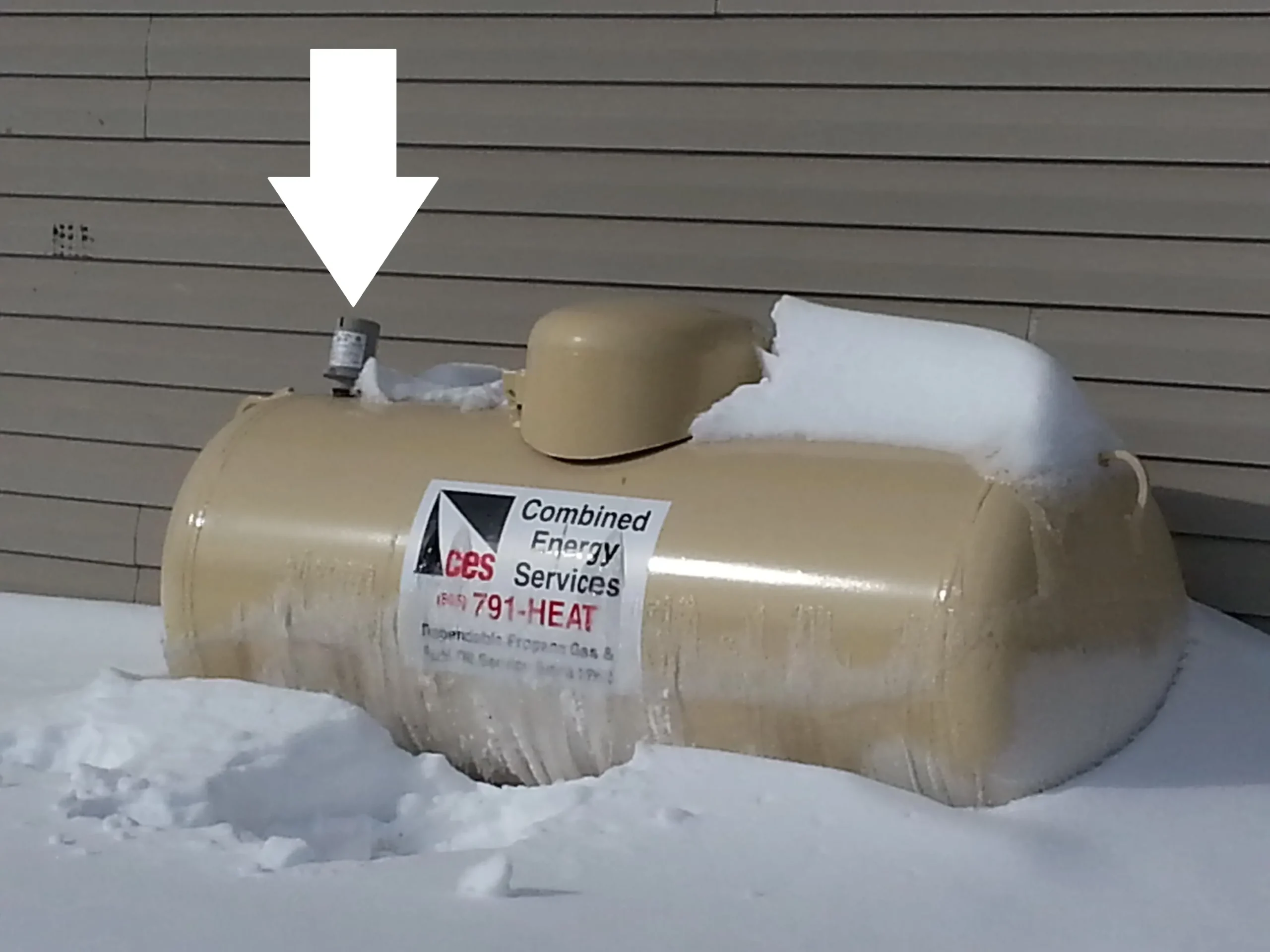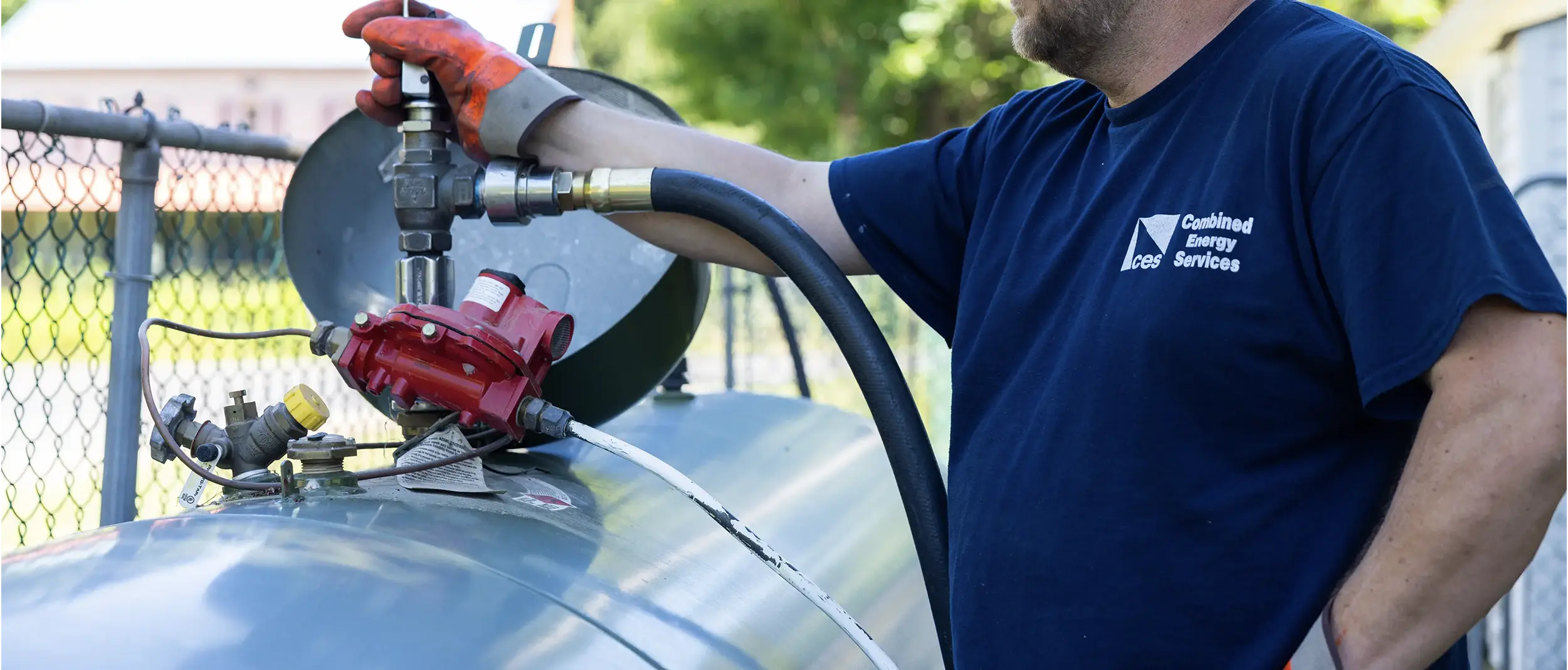Propane Tanks
Propane tanks are the storage containers for propane in its liquid form (LP). Tanks are available in many different sizes being engineered and designed for propane containment at high pressure. Propane tanks are designed for both stationary and mobile use. The tank itself is what allows propane and its usable energy to be portable.
Tank Size
If you already have a propane tank installed at your house, you probably don’t give much thought to the size of your tank. But if you are considering switching to propane or are increasing your propane usage, you might wonder what size tank will best fit your needs. CES can advise customers of the reasons for selecting a certain size propane tank, but knowing some of the reasons will give customers a better understanding of advantages to different size propane tanks.
Tank sizes are determined by home size, usage, and climate. Other factors include:
- Square footage of home
- Propane appliances installed
- Total BTU load of all installed appliances
- Correctly sized propane tank is important
Most common residential propane tank sizes
The most common residential tank sizes are 100 lbs, 100 gallon, 250 gallon and 500 gallon. Your propane usage dictates what size tank will be recommended for you – 100 lb. tanks common for cooking and clothes drying. Homes that use propane only for cooking and clothes drying opt for a smaller 100 lb. tank. These tanks hold 23.6 gallons of propane. On average, propane gas ranges and clothes dryers will use a combined 40 – 75 gallons per year, requiring only 2-4 fill up annually. 100 – 500 gallon tanks are for whole house heating and other appliances. Residences that use propane for whole house heating will need at least a 100 gallon tank. We recommend opting for a larger tank that will require fewer deliveries per year.
Depending on other propane appliances in your home and how often you want to purchase propane, the recommended tank size will vary. Larger propane tanks have the advantage of fewer fill-ups and more control over when you buy. Larger size propane tanks can help you control costs. Propane prices fluctuate with the market throughout the year. 500 gallon tanks enable you to pre-buy your fuel during periods where propane prices are lower. Your propane will last longer, so you might not have to fill up when prices are at their peak.
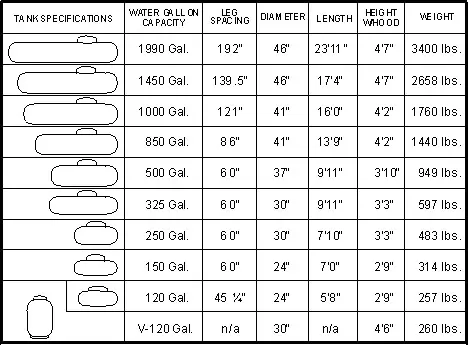
Above Ground
We offer customers tanks of all sizes and colors!!!
Above ground tanks are those that are located above ground. Typically, they sit on a foundation and come in a variety of color options to match your landscape. Above ground tank approval is based on location, size, class of product being stored, and whether it’s for retail or private use. Installation for these types of tanks are generally cheaper than their counterpart, the underground tank, as excavation is not required except for the pad or footing.
Inspection, maintenance and repairs can be conducted visually and more easily simply due to their accessibility, which is less expensive. And if you ever need to relocate your tank, and above ground tank will be more manageable to move. Disadvantages of the above ground tank is due to exposure: vandalism, fire, weather conditions and vehicular collisions are all potential hazards. They also take up more surface space and may require
a vapor recovery system in place.
- Above ground tanks of all sizes and colors
- Underground tank leases program for $1 per year for home heating
- Dependable automatic deliveries at competitive rates
- Balanced Budget Payment Plans smooth bills over 12 months
- Complete installations of gas appliances and HVAC systems
- 24/7 Emergency Services
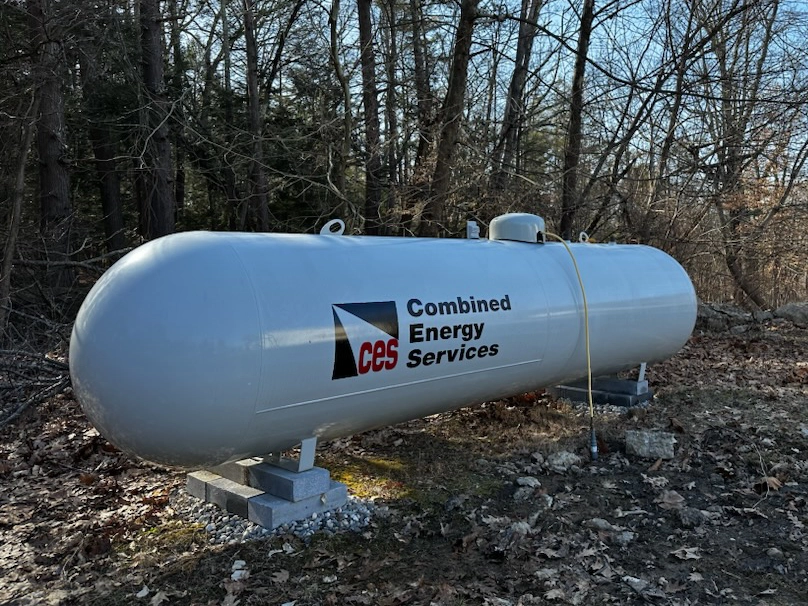
Going Underground
Many home & business owners have decided to go underground since in the end, all that’s visible is the short dome lid which can easily be incorporated into the landscape. Underground propane tanks are environmentally friendly and free of EPA & DEC / DEP regulations like fuel oil tanks. CES has been the region’s leader with the safe installation and on-going maintenance program that ensures the buried tanks lasts for decades.
Each tank is cathodically protected with a two part epoxy coating, carefully buried in sand or loose dirt to minimize corrosion. Sacrificial magnesium anode bags are attached to the steel to prevent corrosion. These anodes deteriorate over time instead of the tank.
With a CES leased tank, each tank & anode system are checked annually with an electric potential meter. If an anode is shown to be weak, allowing the tank to deteriorate, we will install new anodes at no cost to you. With proper maintenance, a buried tank should last 40+ years with no aggravation.
In the unlikely event of a leak, there’s no environmental threat
to your water or soil like fuel oil. CES buries propane tanks for
large developmentCES $1 Per Year Underground Tank Lease
Program (…leave the maintenance & worries to us!) CES has
installed & leased over 2500 underground tanks throughout
the Combined Energy Services tri-state region to home &
business owners when gas is used for heating. We can work
with your excavation contractor or we’ll handle the installation
task from start to finish at a cost that is affordable for any budget.
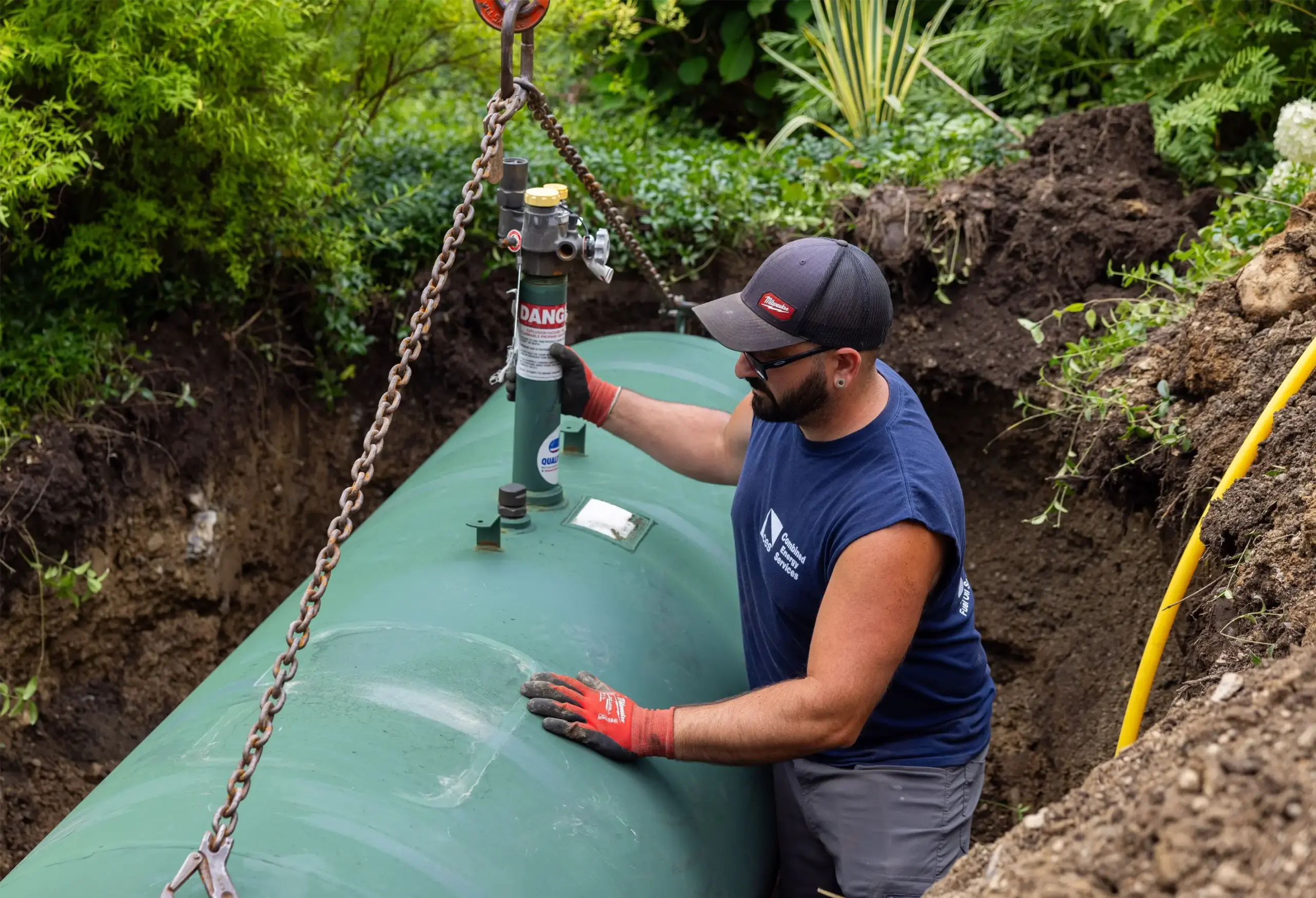
Underground 330 gal tanks at townhouse development Click here for more information including a free site consultation.
Commercial Installations / Housing Developments – Going Underground in a BIG Way!
Bulk tanks of this size can receive full tractor trailer deliveries enabling customers to receive the best possible
pricing. Long term contracted rates are also available for the commercial gas customer.
Remote Tank Monitor
Is a Remote Tank Monitor Right for Your Home?
You might want to consider a remote tank monitor IF:
- You have a second home or travel extensively, especially in the winter;
- You don’t have the time or ability to constantly pay attention to how much fuel is in your propane tank; or
- You want CES to have real-time data and alerts that allow for quick responses to quick troubleshooting.
What is a Remote Tank Monitor?
A remote tank monitor is a device that uses a cellular communication system to send back propane tank usage information to a computer program that interprets the data. It is made up of 3 parts:
- Dialers – The cellular dialer is a sealed, battery powered unit and can be directly wired to two sensors. It is also
directly tank mountable eliminating the need for wiring from the tank. - Transmitters – Transmitters can be tank mountable and can be directly wired to two sensors. They are sealed,
battery powered units. - Sensors – That measure level, usage and maintenance applications.
Each monitor is programed to send weekly readings back to the system in the CES Monticello office. We also program 3 alarms into the monitor – when the tank is at 35%, 25% and 15%. These alarms generate a delivery ticket that gets a propane delivery routed to your location for an automatically.
A remote tank monitor can be a real house saver. It can save you from coming home to a disaster in the winter. If you’re away, you don’t know if your generator has run extensively or if a home thermostat has been stuck in the open mode. Both draining your tank before you expect it.
If you use propane to heat your home and use 600+ gallons of propane per year, you can get one installed for free by calling any of our offices and speaking with a customer service representative. You can also request one for a fee of $139 per year. That’s $11.58 per month. Cheaper than frozen pipes and the damage they cause. Call Combined Energy Services at 800-874-1975 or complete the form for additional information.
